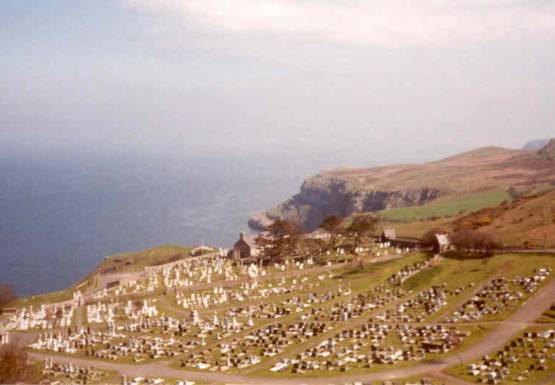
The Great Orme is fully
integrated into the modern tourism and leisure aspects of Llandudno,
but the
Orme is quite large enough to accommodate all these and also the small
resident
community of Tyn y Coed and several farms, and still preserve the many
natural, historic
and
archaeological features that make this headland unique.
These are skilfully presented at the summit
information centre on the Great Orme's Head (Pen-y-Gogarth) and at
the Llandudno
Museum in the town centre.
On
the northern side of the Great Orme, nestling in a sheltered hollow, is
the
church of Saint Tudno with its churchyard and the adjacent town
cemetery, still
in regular use. This
little church, open daily during the season, was built in the 12th
century on a
Christian site dating from the 6th century and dedicated to the memory
of its
founder St. Tudno (feast day June 5th). He was one of the seven sons of
King
Seithenyn whose legendary kingdom in Cardigan Bay was submerged by
tidal
activity. Each son in reparation for their father's neglect, so it was
seen,
studied in St. Dunawd's college at Bangor Iscoed (Bangor on Dee, near
Chester).
Saint Tudno and other local saints are
discussed at the writer’s North
Wales
Saints website.

Hardd
Hafan Hedd – Beautiful
Haven of Peace
Later Tudno
established the Church on Cyngreawdr (the
great rock - the Great Orme). The Ogof Llech (a small cave on the
headland,
difficult of access, but with a clear spring of water) was Saint
Tudno’s cell.
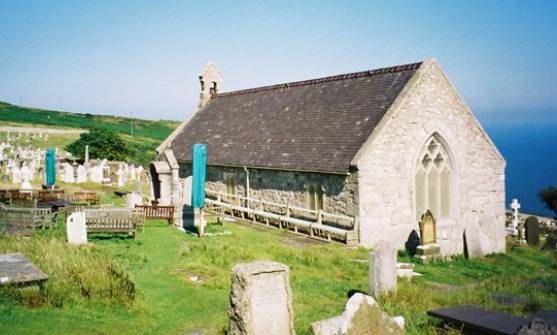
14th
century
surveys indicate that the Episcopal Manor of Gogarth (the area of
the
present Great Orme, which was given to the Bishop of Bangor by King
Edward in
recognition of the bishop’s vital support in the baptism and promotion
of the
first English Prince of Wales) included three townships, Gogarth in the
south-west (where the ruins of the Bishop of Bangor’s Palace survive),
Cyngreawdr to the north (the area centred on St. Tudno’s church), and
Yr
Wyddfid to the east, (overlooking the Happy Valley).
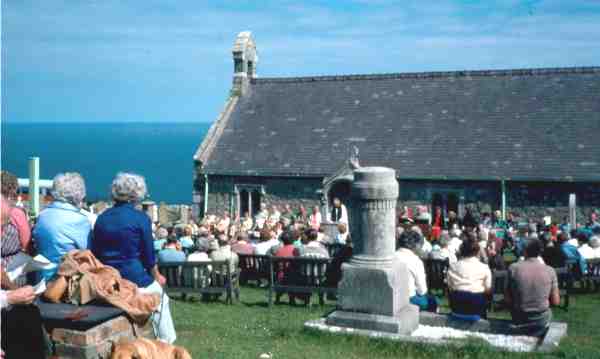
Open-air
services are held
in
Saint Tudno’s Churchyard (see above) on Summer Sunday mornings (from
the last
Sunday in May
until the end of September at 11 o’clock).
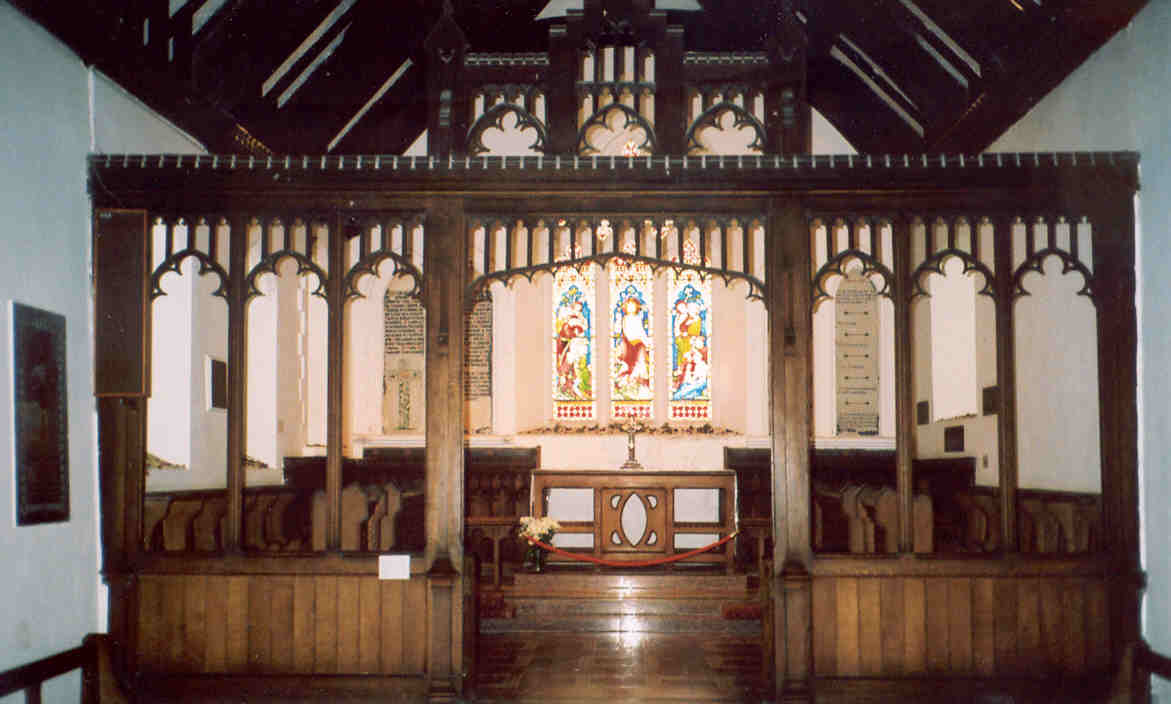
If wet, the service is held inside St.
Tudno's Church.
Full details are on Saint Tudno's
Page on the Llandudno Parish Website.
Holy Trinity, the
Church in Wales (Anglican) parish church in Mostyn Street Llandudno,
has its
principal service every Sunday morning at 10:30am. Full details
are on the Llandudno
Parish Website.
There are four
churches in
the Church in Wales (Anglican) parish of Llanrhos (including Saint
Paul’s at
Craig y Don) and full details are given on the Cytûn
website.
The principal
churches of
Llandudno are members of Cytûn
– Churches Together
in Llandudno and details of all Church Services are at Llandudno Churches Together.
The Cytûn website also has a page devoted to Saint Tudno's Church
and its Services.
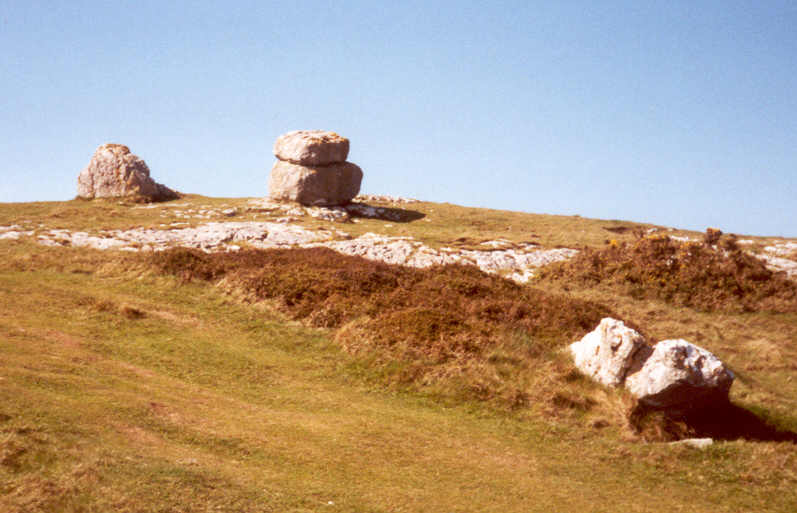
Not
far from St Tudno’s on the high ground to the west are many glacial
erratics
including this one resembling an old-style cottage loaf. This is
Llandudno's
famous
Free Trade Loaf against which, in earlier times, trade bargains were
traditionally struck. Nowadays everyone uses shops, markets, and
auctioneers
and, of course, modern shopping centres.
Between St. Tudno’s
and the
Free Trade
Loaf, near Ffynnon Rufeinig (Roman Well, near which Roman coins were
once found), is an area, shown in aerial
photographs,
containing striking evidence of extensive ridge and furrow farming, and
also
nearby
is ‘Hwylfa’r Ceirw’, an ancient double row of stones.
(last
updated May 2008 - photographs © Noel Walley)
Llandudno the Queen of North Wales
Resorts